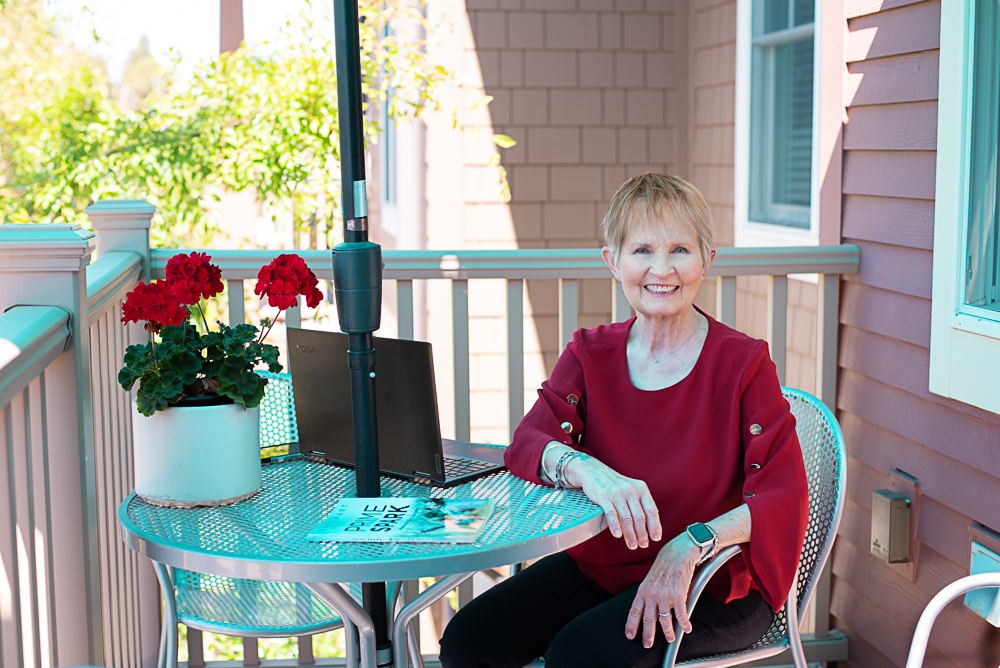Women Over 50: How Do You Deal with Loss? Do you ever feel, as the years pass, that you experience more and more loss? I think many people do. I certainly do. Both of my parents have died. Three very close friends have died. Last weekend my kitty, Mr. Bu, died. Since he was the costar of my most recent book, Mellie and Mr. Bu: A Story of Love and Friendship, I’m so happy he was still here for the publication of the book and the official launch. He also was here for his eighteenth birthday. That’s a long life for a cat.
There are other kinds of loss. The loss of a job because of ageism, loss of the physical fitness many of us enjoyed in our younger days, loss of friends as they move away in order to be closer to their children and grandchildren. At some point we may decide to move into a smaller place that’s easier to take care of. And this move, although often by choice, usually involves losing a significant portion of what has been familiar for many years.
Many of these losses have an impact on who we think we are… of how we see ourselves and how we relate to the world. These changes can be extremely unsettling, sometimes scary, and often sad. Think for a moment about the losses you’ve had in your life. Would you describe them as major, life-altering losses, or as bumps in the road that were fairly easily navigated? As you mentally list these, do they seem to be coming more and more frequently? I’m reminded of the silly saying, attributed to Bette Davis, that “getting old ain’t for sissies.” Silly, yes, and very true in my experience.
How Do You Deal with Loss?
What can we do to cope with the sometimes expanding list of losses? These four tips might help:
- Stay in the moment. This often is easier said than done, and it is extremely beneficial. The past is the past and the future is not here yet. The only time you have is this moment. Concentrate on right now, and don’t let your mind wander away and stay there for any length of time. Your mind will wander. The trick is to as quickly as possible realize that what you’re dwelling on has already happened and come back to the present.
- When you’re ruminating on the loss and how painful it may be, look around and identify fifteen specific things you’re grateful for. Don’t stop until you have fifteen.
- Think of someone you know who may be feeling the pain of a loss or intense loneliness. Reach out to them and let them know you’ve been thinking about them. Don’t use the opportunity to talk about yourself and your own loss. Focus on them.
- Build your resilience. Developing robust resilience is very important. We saw during the Covid crisis how facing the situation with a resilient attitude could help alleviate the fear, isolation, and boredom many people felt. Here is an excellent article that will explain some ways to build your resilience:
Take Time
Deep grief of course takes time to lessen and heal, so don’t feel as if you should rush the healing process. On the other hand, staying there indefinitely will not be beneficial to you in the long run.
One of the aspects of getting older is losing things and people who have been very important to us. This is true for most of us. Knowing you’re not the only one who is experiencing this may be comforting. Women Over 50: How Do You Deal with Loss? Do you have ways you deal with your own losses? Please share them in the discussion below so we can all help each other.
Learn More…
The Prime Spark Membership Community is designed for women 50 (or close) and older to support one another. We learn and grow together while furthering the mission of Prime Spark. Membership currently is currently closed. If you’re interested in joining, please send an email to [email protected] and ask to be placed on the waitlist.
To learn more about Prime Spark, go to www.primesparkwomen.com.


Jerry and I moved to a beautiful CCRC here in Richmond almost two years ago. We LOVE it and we love our beautiful community of friends and staff.
The hardest thing is that loss is ever present; last night, one of our dear friends passed and many of us will be doing all we can to love and support the wife he left behind.
Being 75, I know that there will be many losses ahead and, like you, I find that a litany of gratitude keeps me in the moment and allows me to enjoy all that I have NOW! Your advice, as always, is spot on! ❤️❤️
So good to hear from you, Sharon! I also live in a CCRC and loss is a constant. And for me, also, focusing on the present with gratitude helps. ❤️